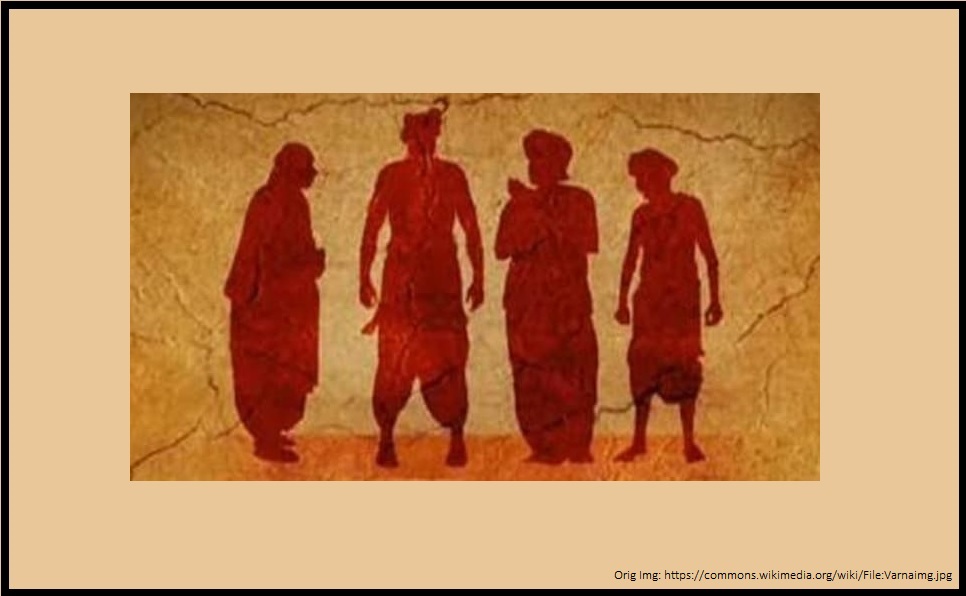In the first part, we saw how Hinduism is not the same as Abrahamic religion in terms of the concept of God as well as communication between men and God. In this second and conclusive part, we will see how Hinduism is not the same as Abrahamic religions in terms of spirituality and idol worship.
Spirituality in Hinduism and Abrahamic religions
The characteristics of a religion is typically shaped by the kind of questions raised and answered by the spiritual leaders.
Spirituality in Hinduism:
Hinduism concerns itself with deeper questions of humans about their origins, their self-identity, their true home – Questions such as Who they are, Where they come from, Is death his only destiny? What is real? Is he only his body or even his mind and intellect? Is death his only destiny? His mind is a prisoner of passions with little and uncertain knowledge. Is there in man some other principle of greater and surer knowledge? Is there something by knowing which all this is known or atleast makes sense?
Hindu spiritualities try to seek answers to the above question and have a vision of a higher and transformed life. It focuses on seeking self knowledge, which leads to the highest knowledge of Gods. In fact you cannot develop the highest knowledge without self knowledge. It has found that the questions about God are ultimately questions about one’s own true self. Hindu spirituality is deeply introspective and has developed science of inner exploration for seeking spiritual knowledge called Yoga.
Hinduism puts great emphasis on the soul-life, which is higher life. The true-life of a man is his soul-life. However, man lives for most part in his external self, in his desires, hates, ego and ignorance which covers the soul-life. In order to uncover his soul-life, man has to develop new powers of the soul like faith, tapas, self restraint, harmlessness, truthfulness, forgiveness. He has to develop the power of concentration and meditations. He has to develop devotion, spiritual discrimination, detachment, equal mindedness and universality. As he embarks upon this journey the seeker becomes aware of the larger God-life that surrounds him and his heavenly roots. He becomes aware of great liberating forces, the forces of spiritual faith, mindfulness, samadhi and wisdom. He also becomes aware of the forces that bind him to lower life, the forces of desire, of anger, of false ego and lack of knowledge. During the journey he not only realizes that God or Gods are within him but he is also within them. On his path he meets many divine figures which are also truths of his own soul. He sees God or Gods as the power of souls. He also sees that the qualities that satisfy and nourish the soul are also almost God-like. Soul also discovers that it is kin to God and like unto the God which it worships. He feels one with all living beings, past, present and future. He also feels one with elements; the sky, the sun, the night and day, the four directions, the wind, the fire, the waters and the earth – all are kins and friends. All are part of cosmic holiness and goodness.
Thus, Hinduism views men as seeker, who tries to seek higher knowledge about himself which in turn leads to the knowledge of Gods. He feels oneness with all living beings and all elements of nature
Spirituality in Abrahamic religions:
The prophetic religions never raised such questions. The questions raised by prophetic religions are very different. Who is the true God? What is his will? How can it be fulfilled?
Somehow they came to the conclusion that they knew the true God and that the God his neighbors knew were false. They have a set of beliefs and commandments from God that followers are expected to follow and these are revealed through the prophet. It becomes the duty and God-given responsibility of their followers to propagate their view about God and about his religion. All men must be made to embrace this truth anyhow. The prophetic religions completely lack the science of inner exploration or seeking higher spiritual knowledge. A follower/believer thinks that God has chosen him. God has already revealed to him the truths hidden from others and he has nothing to learn. He has been sent to understand and teach the commandments as well as correct things and wherever possible even punish. It becomes a religious duty to convert others to those beliefs.
Thus, these religions have always sought followers to be preachers, crusaders or mujahid. Both lack Yoga or a proper-science or discipline of inner exploration and are more like ideologies than spiritualities.
Idol worship in Hinduism and Abrahamic religions
Idol worship in Abrahamic religions:
Abrahamic religions prohibit idol worship. In fact, it encourages breaking idols and images. Throughout the Indian history, the common thing that you will notice about Christian or Muslim invaders is that they will break the temples/idols and convert the native population to their respective faith often by force. They have done the same across their invasions throughout the world. Though Abrahamic religions prohibit idol worship, they do follow similar rituals. They worship relics and graves of saints and important figures. For e.g. one of the churches in Rome displayed three pieces of cross by which Jesus was hung, two thorns from Jesus’s crown, the cord by which Jesus was tied to the cross etc. Christians have idols in thousands of their churches. In Islam they circle and kiss the Black stone in Kabba. They also throw stones at Jamarat. In some places, the prophet’s hair is an object of great respect.
Idol worship in Hinduism:
Hindus worship Idols. Idols are not only visual aides to mental concentration on devtas behind image but are also used to invoke and establish the divine energy (typically in vigraham). The idols are interior realities (during self realization journey) expressed in outer forms. As per Hinduism, one cannot directly worship idols of stone or clay. Idols have to go through a ritual called Prana pratishtha where in any object or a space is brought into life by imbuing prana in it. It is only after this prana pratishtha ritual the idol of devta can be worshiped.
Note:- Unlike Abrahamic religions, which are based on a single book, Hinduism has multiple scriptures. Some of these scriptures prohibit idol worship but none disrespect existence of other Gods or recommend destruction of idols for e.g. The Vedic people didn’t worship idols though they had many religious symbols but they didn’t deny the existence of other Gods or destroyed idols. On the other hand, they admitted many Names and many approaches and concluded that it is the same reality which wise call by many names.
Conclusion
God in Abrahamic religions vs God in Hinduism:
The God in Abrahamic religions claims sole sovereignty or exclusivity. This God is for chosen people for e.g. only for Christians or Muslims and is known through the special intermediary (prophet). All benefits that this God showers are restricted for his followers only. This God also claims that the other Gods are false and has enmity towards other Gods and their followers. He punishes those who don’t believe in him and his prophets or messengers. The entire humanity is divided into two – Believers and non-believers or infidels or heathens.
True Godhead in Hinduism is beyond number and count. The God or Gods in Hinduism doesn’t claim he is the single or only God and doesn’t object to the existence of multiple Gods. God doesn’t claim sole sovereignty or exclusivity. He doesn’t have enmity towards other Gods. Hinduism preaches a higher life that is accessible to all who fulfill the conditions irrespective of their creed. There is only one humanity and no infidels or heathens. Hinduism also has the law of Karma and the doctrine of reincarnation and rebirth.
Communication with God in Abrahamic religions vs Hinduism:
In Abrahamic religions there is no possibility of direct communication with God. The God needs to be approached through intermediary i.e. prophet. Whereas in Hinduism anyone can directly approach God through Yogas or Sadhanas without any intermediary.
Spirituality in Abrahamic religions vs Spirituality in Hinduism:
The Abrahamic religions lack the science of inner exploration for seeking higher spiritual knowledge. Instead they have a set of beliefs and commandments from God (revealed through the prophet) that followers are expected to follow. It becomes the duty and God-given responsibility of their followers to propagate their view about God and about his religion.
Spirituality in Hinduism focuses on seeking self knowledge, which leads to the highest knowledge of Gods. Self knowledge can be sought through science of inner exploration for seeking spiritual knowledge for e.g. Yoga, Sadhana etc. It puts great emphasis on soul life.
Abrahamic religions and Hinduism on Idol worship:
Though Abrahimic religions claim that they prohibit idol worship, they do follow similar rituals. They worship relics and graves of saints and important figures.
Unlike Abrahamic religions, Hinduism is not based on a single book. It has multiple scriptures some of which prohibit idol worship and some view idol worship as visual aids to mental concentration on devtas behind image. Idols have to go through a ritual called Prana pratishtha where in any object or a space is brought into life by imbuing prana in it. It is only after this prana prathistha ritual the idol of devta can be worshiped.


